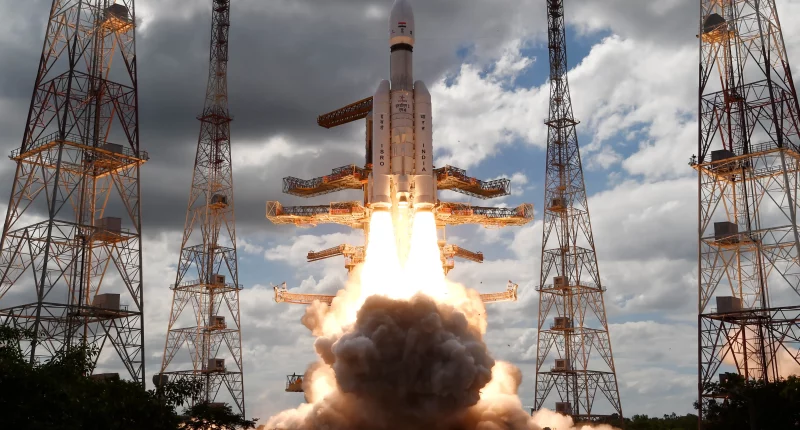In a momentous stride towards lunar exploration, India’s space agency, the Indian Space Research Organisation (ISRO), has accomplished a significant milestone by successfully performing the TransLunar Injection (TLI) for the Chandrayaan-3 spacecraft. In simple words, Chandrayaan-3 has completed its orbits around our blue Planet, and is now heading towards its natural satellite, the Moon.
The development was announced in a post on X, adding that “the moon” is now its next stop. The TLI was successfully performed from ISRO Telemetry, Tracking and Command Network (ISTRAC) in Bengaluru in order to slingshot Chandrayaan-3 towards the moon.
“Chandrayaan-3 completes its orbits around the Earth and heads towards the Moon. A successful perigee-firing performed at ISTRAC, ISRO has injected the spacecraft into the translunar orbit,” read the official tweet on the micro-blogging site. It comes hours after the previous update was provided, wherein Chandrayaan-3 was gearing up to depart from the planet’s orbit and head towards the moon.
Chandrayaan-3 Mission Update:#Chandrayaan3 completes its orbits around the Earth and heads towards the Moon.
A successful perigee-firing performed at ISTRAC, #ISRO has injected the spacecraft into the translunar orbit.
Next stop: the Moon ?
As it arrives at the moon, the… pic.twitter.com/bKC5RDfxCi
— LVM3-M4/CHANDRAYAAN-3 MISSION (@chandrayaan_3) July 31, 2023
Speaking more about Chandrayaan-3, the spacecraft comprises three modules – a Lander module (LM), a Propulsion module (PM), and a Rover. On August 17, the PM and LM will separate, paving the way for a series of de-boost manoeuvres. These manoeuvres are essential to facilitate a smooth power descent phase for the spacecraft’s soft landing on the lunar surface, which is scheduled for August 23 at 5:47 PM.
The spacecraft has already completed its orbits around Earth and is now en route to the lunar vicinity, primed for the next phase of its mission. As the spacecraft embarks on its trajectory towards the moon, the anticipation builds for the Lunar-Orbit Insertion (LOI) scheduled for August 5, 2023. This eagerly-awaited moment will determine the spacecraft’s entry into the lunar orbit, opening the door to a series of critical orbit manoeuvres (four in total) that will eventually position Chandrayaan-3 at a remarkable distance of approximately 100 km from the Moon’s surface.
Should the Chandrayaan-3 mission achieve success, it will go on to have a far-reaching impact on India’s space exploration endeavours. Not only will it enhance India’s reputation in the global space community, but it will also open up new avenues for scientific research, answering previously unanswered questions and likely inspiring inspire the nation’s youth to pursue careers in science, technology, engineering, and mathematics (STEM). A successful mission will serve as a catalyst to nurture scientific curiosity and innovation among the younger generation, fuelling India’s future workforce in cutting-edge fields
The Tech Portal is published by Blue Box Media Private Limited. Our investors have no influence over our reporting. Read our full Ownership and Funding Disclosure →






